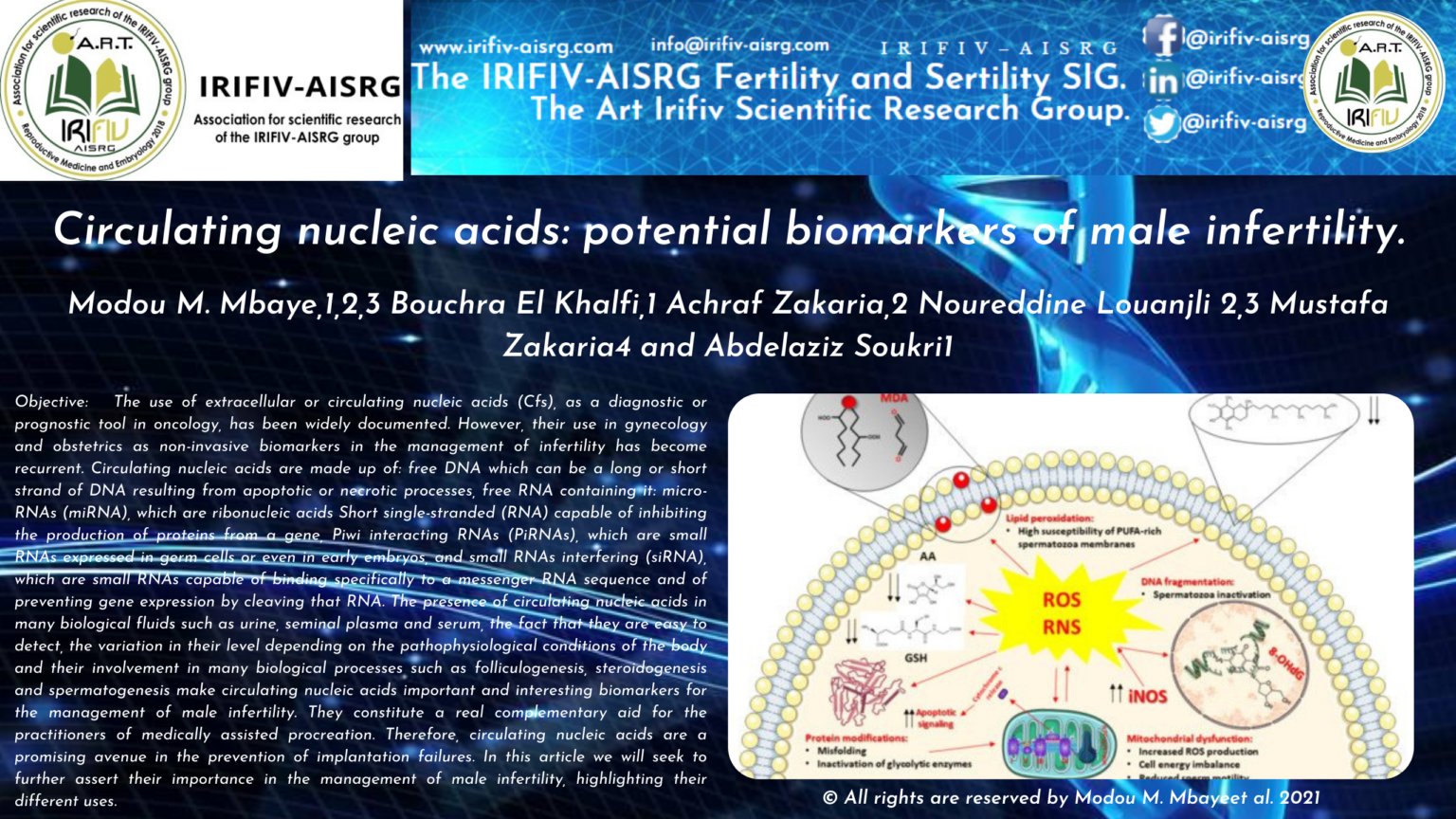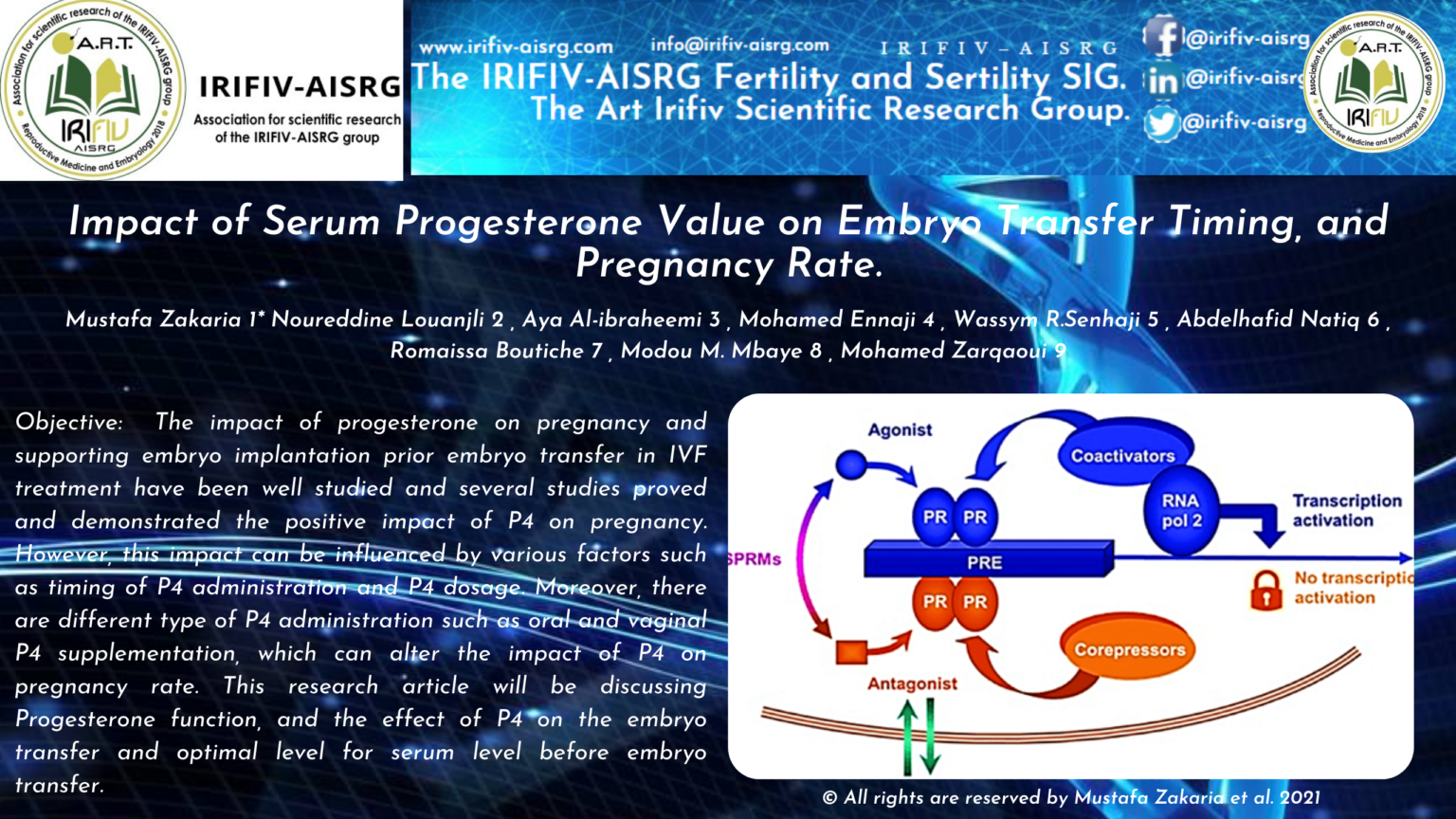Modou M. Mbaye,1,2,3 Bouchra El Khalfi,1 Achraf Zakaria,2 Noureddine Louanjli 2,3 Mustafa Zakaria4 and Abdelaziz Soukri1
ABSTRACT
The use of extracellular or circulating nucleic acids (Cfs), as a diagnostic or prognostic tool in oncology, has been widely documented. However, their use in gynecology and obstetrics asnon-invasive biomarkers in the management of infertility has become recurrent. Circulating nucleic acids are made up of: free DNA which can be a long or short strand of DNA resulting from apoptotic or necrotic processes, free RNA containing it: micro-RNAs (miRNA), which are ribonucleic acids Short single-stranded (RNA) capable of inhibiting the production of proteins from a gene, Piwi interacting RNAs (PiRNAs), which are small RNAs expressed in germ cells or even in early embryos, and small RNAs interfering (siRNA), which are small RNAs capable of binding specifically to a messenger RNA sequence and of preventing gene expression by cleaving that RNA. The presence of circulating nucleic acids in many biological fluids such as urine, seminal plasma and serum, the fact that they are easy to detect, the variation in their level depending on the pathophysiological conditions of the body and their involvement in many biological processes such as folliculogenesis, steroidogenesis and spermatogenesis make circulating nucleic acids important and interesting biomarkers for the management of male infertility. They constitute a real complementary aid for the practitioners of medically assisted procreation. Therefore, circulating nucleic acids are a promising avenue in the prevention of implantation failures. In this article we will seek to further assert their importance in the management of male infertility, highlighting their different uses.
NEW- soon….





